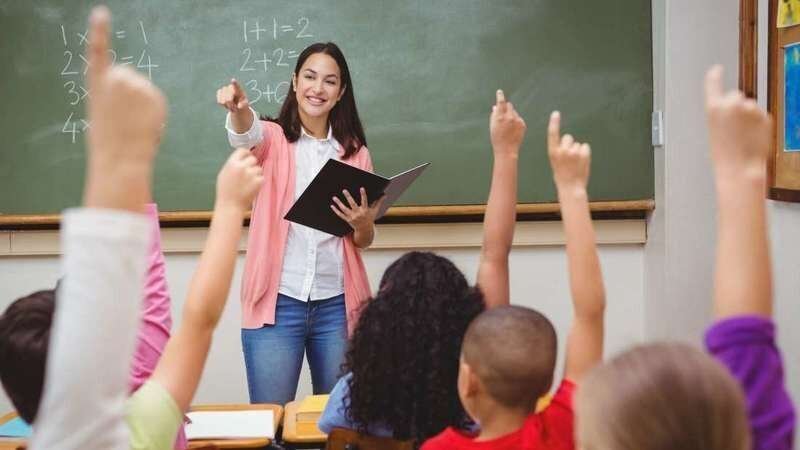Qualities of great teacher shape our lives. Most of us had one—a primary school teacher who inspired success or a secondary science teacher who made learning fun. Whoever they were, their influence was powerful, and the impact of that one remarkable teacher can truly be phenomenal.
And it doesn’t even take much.
Qualities of Great Teacher: Love Your Subject
A great teacher LOVES their subject. They can talk about it for hours. If you were to make the mistake of asking me (a physics teacher) about aerodynamics, for example, you’d be awarded with an animated discussion about flight mechanics. You’re welcome.
Or, if history is your subject- LOVE history! If you’re a primary teacher, LOVE seeing your children learn! After all, if your initial sparks of excitement have died, how will you ignite your students’ interest?
The repetitiveness of the national curriculum can be the unfortunate demise of enthusiasm. The same topics, the same exercises, the same projects. But that’s exactly the issue- the same. Qualities of Great Teacher love their subjects so much that they’re inspired to create new resources. New case studies. New lesson plans.
Suddenly, they’re excited about their lessons again. And this is the best quality a teacher can have. So providing teachers are in the right teaching position in forward-thinking schools they can remain inspired.
Qualities of Great Teacher: Get Down to the Basics
You might turn to me and say, that’s all very well, but if a top scientist babbled excitedly to a bunch of Year 7s about sequencing human DNA, they wouldn’t take in a thing! And you’d probably be right.
A great teacher is equipped with the ability to break down a topic into accessible chunks. I’m willing to bet that a top-notch teacher would be able to teach those Year 7s about sequencing human DNA. They’d focus on the concepts, using familiar analogies, pictures, and animations. Everyone would be able to take something away from the lesson.
Qualities of Great Teacher: Don’t Lecture Me!
A teacher and a lecturer are very different. A great teacher constantly interacts with their students. They focus on delivering content, but also encourage feedback, discussion, and communication. A Qualities of Great Teacher will only deliver content for a part of the lesson; the remainder will be spent allowing students to work independently. The role of a teacher during this time is crucial for a student to learn well. A great teacher celebrates mistakes and rewards effort; they turn a failure into a learning opportunity. They encourage problem solving and critical thinking. They ask questions and stimulate discussion.
Sometimes, a teacher can morph into a lecturer without realising. They just talk and talk and talk… and, oh! The bell has rung. Don’t be that teacher.
Both a teacher and a lecturer have their place. But a teacher is not a lecturer, and that distinction is important when it comes to our next quality.
Qualities of Great Teacher: Better Than a Textbook
A Qualities of Great Teacher is more than just someone who just delivers content well. After all, an online video can do that excellently. A great teacher is someone who adapts to their students. Listens to their students. Discusses with their students. It’s about opening up two-way communication and responding to your students’ needs. You don’t get that from a textbook.
This is important for two reasons. Firstly, the teacher can identify any misunderstandings, and rephrase their language to tackle it. They can get a sense of how much the student has understood, or whether more time is needed.
This is also great for the student. How many times have you sat in class previously, not wanting to ask a question? A good teacher allows students to voice their uncertainties and ask for help.
But how does this link back to the qualities of a professional teacher?
Great teachers are approachable. They’re friendly. They genuinely care about their students. They leave their personal lives at the door, bringing into the classroom nothing but smiles.
Qualities of Great Teacher: Go With the Flow
“Proper planning and preparation prevents poor performance”. An old military adage, but one that couldn’t be truer. A great teacher is supported by preparation and planning.
What your preparation looks like depends on you and your students. You might follow a structured lesson plan with prepared activities. You might be more fluid with a small group, to facilitate a student-led session. But that also takes preparation- you’ve got to have the right materials on hand to support any request!
Every great teacher needs to be flexible. You can never predict how a class will go, and a great teacher can adapt to the circumstance and change their plan if required. If the whole class is struggling, a good teacher will recognise the signs and change the lesson to go back to the basics.
Conclusion: Summing Up the Qualities of Great Teacher
Let’s sum up what makes a great teacher.
Firstly, they’re excited about their subject, and they share that enthusiasm with their students. They have the ability to break down any topic into smaller chunks. They support independent study. They facilitate two-way communication and feedback. They prepare, and plan to be flexible.
We’ve only touched on some of the basics of a great teacher. But if these are put in place, often everything else will follow.


